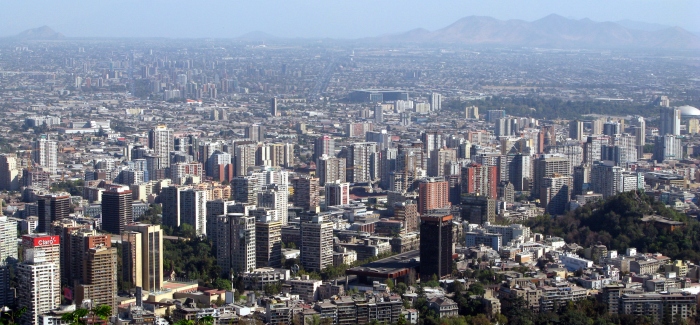Home to some of the most prestigious universities in Latin America (including this year’s number one in the QS Latin America University Rankings 2018, Pontificia Universidad Católica de Chile), Chile is a relatively affordable study destination and is an ideal choice for lovers of the outdoors, as well as being one of the safest and most prosperous nations in the region.
Read on for an overview of the typical costs of studying in Chile, including a look at what scholarships you could apply for.
Tuition fees in Chile
All universities in Chile, both public and private, set their own tuition fees. Fees have been rising in recent years, but are nonetheless lower than you’d find in study destinations such as the US, with private universities charging an average of US$5,500 per year. This is slightly higher in the capital, Santiago, where international undergraduate students pay US$6,300 on average. Courses such as medicine will cost more.
Your exact fees will vary depending on the number of courses and credit hours you take, but below are some examples at some of the top universities in Chile:
- Pontificia Universidad Católica de Chile: US$1,200 a semester (US$2,400) a year. Each credit costs US$120.
- Universidad de Concepción: US$5,000 a year
- Universidad de Talca: US$5,000 a year
You will also need to pay a matriculation fee on enrollment – this is US$250 at the Universidad de Chile.
If you need to brush up on your Spanish language skills, many universities in Chile offer additional classes to do so. At Pontificia Universidad Católica de Chile, for example, Spanish courses cost US$150 per hour.
Living costs
Thanks to its strong economic growth, Chile is one of the more expensive countries in Latin America in terms of living costs, but also boasts of the highest standards of living in the region. Your exact costs will depend on your location, spending habits and lifestyle, but students generally need about US$700-1,100 each month, or at least US$8,400 per year. It’s important to note that international students legally cannot work while they study in Chile, so you can’t supplement your finances with part-time work after you’ve arrived. Capital city Santiago was ranked 58th in the Affordability category of the latest QS Best Student Cities, putting it in the mid-range of the 100 cities featured. As with many countries, living costs are lower outside of big cities.
In terms of accommodation, students might live in university halls, rent privately, or live with a Chilean host family (this may be the most affordable option, at US$600 per month with all bills and food included, and will also be an ideal way to perfect your Spanish).
Here are some examples of typical living costs in Chile, according to Numbeo:
- Meal in an inexpensive restaurant: US$8
- Bottle of water: US$1
- A liter of milk: US$1.20
- Loaf of bread: US$0.95
- One-way ticket on local transport: US$1
- Monthly transport pass: US$47.50
- Monthly gym fee: US$42
- Clothing (a summer dress): US$37
- Monthly rent for a one-bedroom apartment in a city center: US$343
- Monthly rent for a one-bedroom apartment outside a city center: US$274
- Monthly internet bill: US$30
You’ll also need to budget for additional costs, such as health insurance and the application fee for your student visa, which will vary depending on your nationality.
Scholarships to study in Chile
There are a range of scholarships available for international students to study in Chile, including:
Pontificia Universidad Católica de Chile
A range of international scholarships awarded based on academic merit.
A range of scholarship awards for students with financial need, as well as those awarded based on academic excellence.
Nelson Mandela Scholarship Program
This is for international students from South Africa, Angola and Mozambique to study a master’s degree at selected universities in Chile.
CONICYT National Master Scholarship
Another scholarship to study a master’s degree in Chile. CONICYT also offers scholarships for PhD students.
To find scholarship opportunities, you can consult the official website of the Chilean institution/s you’re interested in, check government agencies, independent scholarship database sites, and other online listings. You can read more advice on how to find scholarships to study abroad here.
Want more content like this? Register for free site membership to get regular updates and your own personal content feed.









